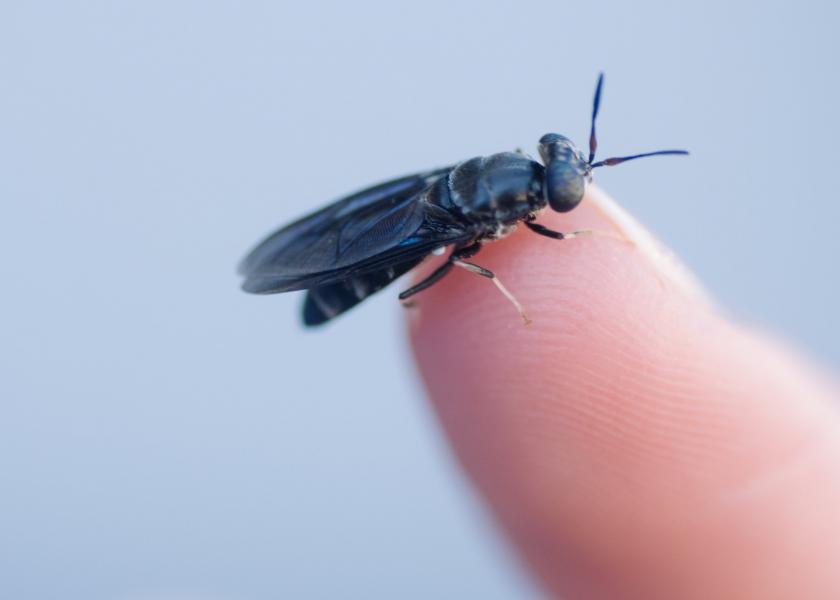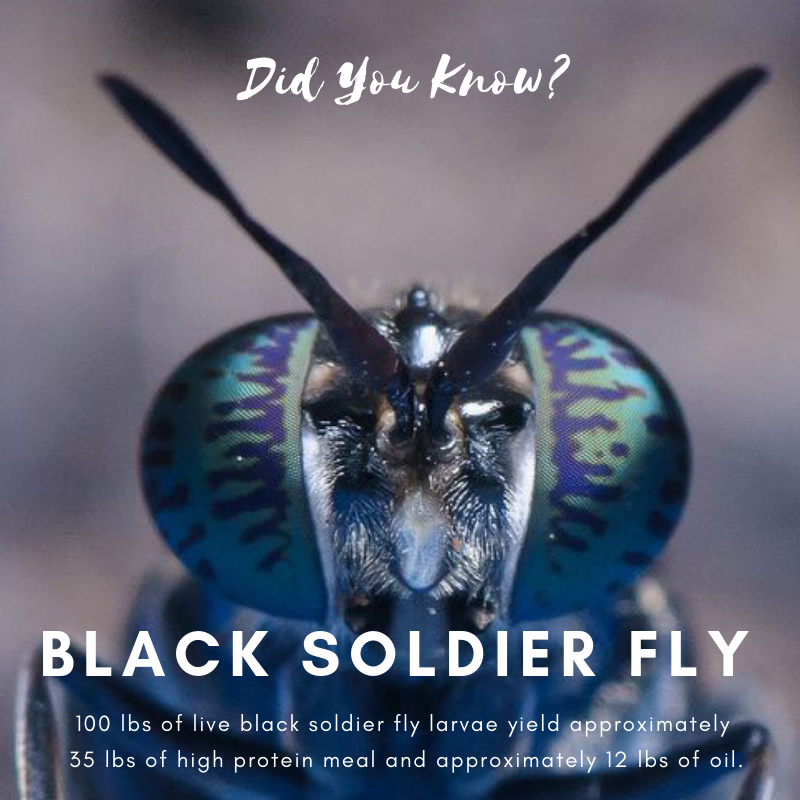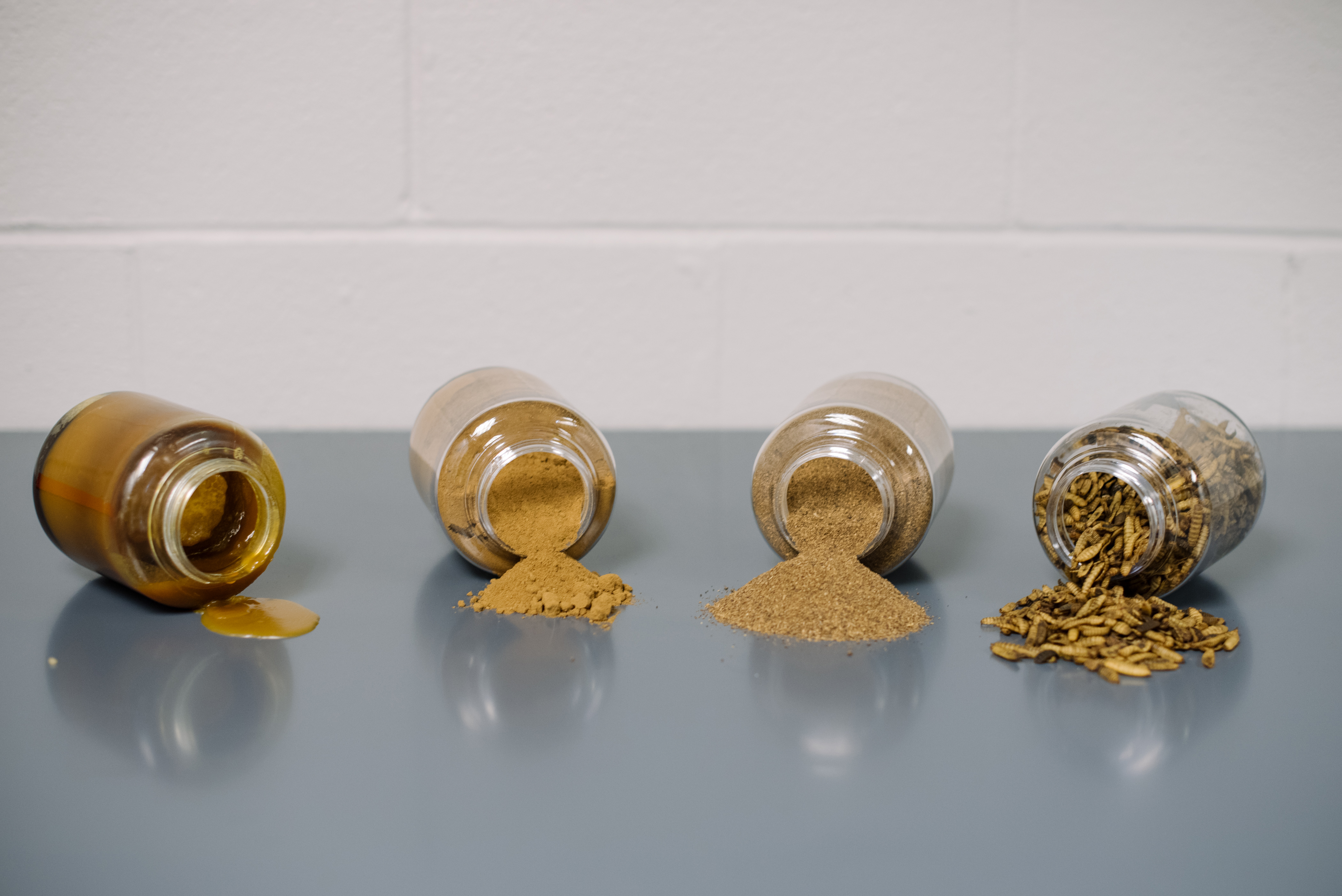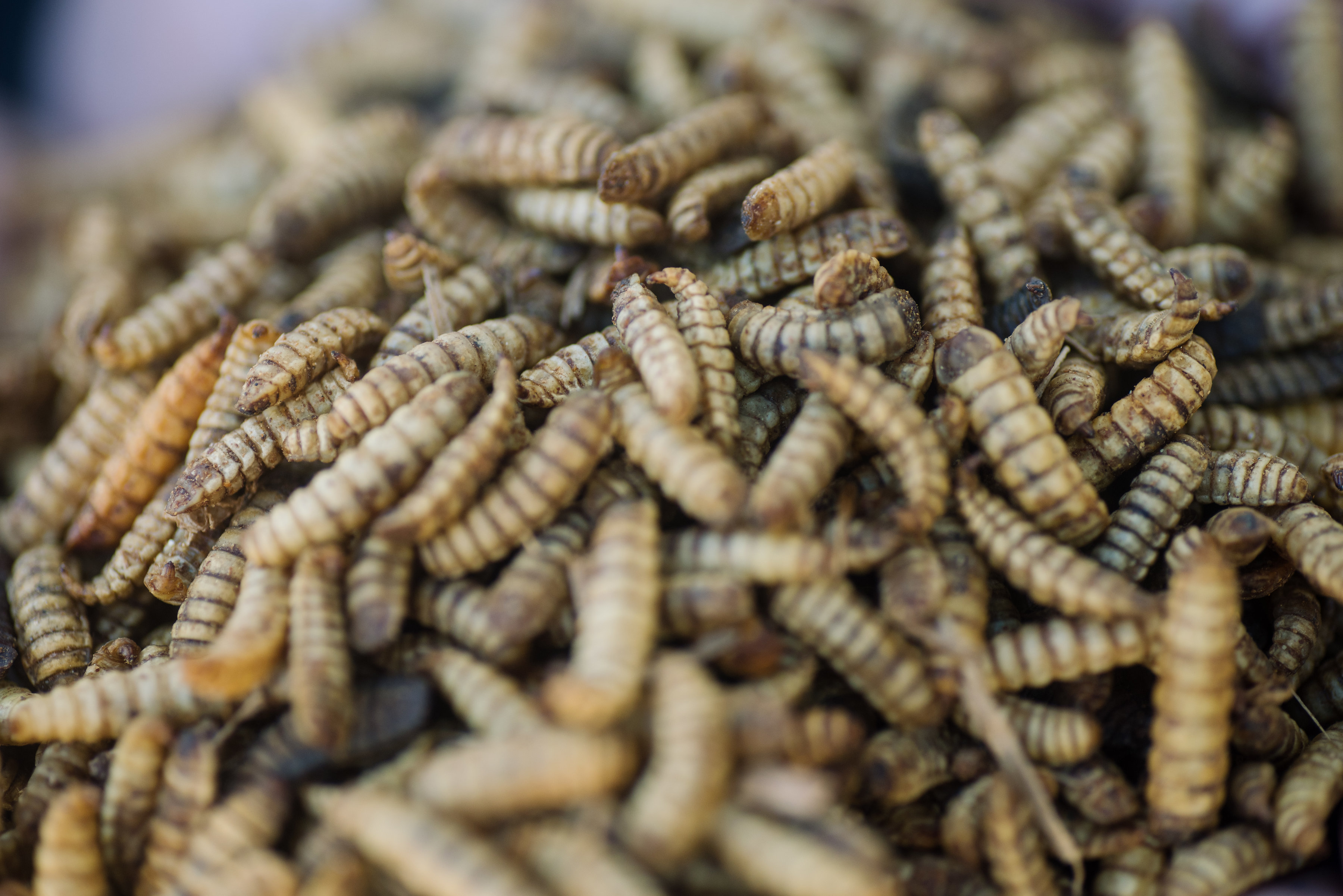Black soldier fly larvae oil: A possible new ingredient for pig diets

By Eric van Heugten, Department of Animal Science, North Carolina State University; and Alejandra McComb and Liz Koutsos, EnviroFlight, LLC
Insect-derived protein and lipid sources can be sustainable, alternative ingredients for the feed industry. Not only are insects easy to grow, reproduce readily and can thrive on a variety of feedstock inputs, but commercial production of insects requires much less energy, less agricultural land and lower environmental footprint than the production of common feed crops.
To be considered suitable as a feed ingredient for pigs, insects can only be fed materials that meet AAFCO guidelines (meaning that they can only be raised on ingredients that are approved for use in animal feeds). Currently, insects and their products are not approved for feeding of swine.

Why black soldier flies?
Within the insect species, black soldier flies (Hermetia illucens) hold promise for use as a feed ingredient in poultry and livestock diets. Black soldier fly larvae are ferocious eaters, which makes them interesting as a potential feed source for pigs, because they grow very fast.
The adult flies are not a nuisance like house flies – they make no buzzing sound and do not carry zoonotic diseases. They tend to not fly and do not feed as adults, relying solely on their fat stores for energy. Commercially produced black soldier fly larvae contain approximately 35-50% protein and 20-25% oil (on a dry matter basis) and are a good source of calcium and phosphorus. However, their composition is highly dependent on the materials they are grown on and the age at harvest.
The protein is of high quality, similar to soybean meal, and is first limiting in methionine and cysteine for pigs. The oil is high in lauric acid (C12:0; approximately 37% of the oil), which is a medium-chain fatty acid. Lauric acid has been shown to have anti-microbial properties, and this may be particularly interesting in young, newly weaned pigs.

Black soldier fly larvae oil products
Impact of black soldier fly larvae oil in nursery pig diets
We conducted a study at North Carolina State University to specifically determine the impact of supplemental black soldier fly larvae oil at various inclusion levels on growth performance and serological and hematological indices in nursery pigs.
We used a total of 192 pigs that were weaned at 21 days of age with an average body weight of 15.2 lbs. Pigs were assigned within sex and body weight blocks to one of four dietary treatments, using 48 pens. Pigs were housed four pigs per pen with equal representation of gilts and barrows within each pen.
Dietary treatments consisted of 0, 2, 4, and 6% supplemental black soldier fly larvae oil, replacing equal amounts of corn oil. All diets contained a total of 6% oil. Treatments were fed in three dietary nursery phases, with Phase 1, 2, and 3 being 14, 11, and 15 days in duration, respectively.
Supplementation of black soldier fly larvae oil linearly increased pig body weight and average daily gain, resulting in an advantage of 1.3 lbs of extra body weight in pigs fed the 6% black soldier fly larvae oil compared to the control diet containing corn oil. Feed efficiency was improved when black soldier fly larvae oil was fed, but feed intake was not impacted.
Blood samples were collected at the end of the study (day 40) for a serum chemistry panel to assess the general health status of pigs, including kidney and liver function, electrolyte balance, acid-base balance and blood glucose.
Feeding of black soldier fly larvae oil did not affect serum chemistry, with the exception of cholesterol, which was increased with the inclusion of black soldier fly larvae oil. This is not surprising because black soldier fly larvae oil contains cholesterol, directly contributing to increased serum concentrations, whereas corn oil does not. Additionally, black soldier fly larvae oil contains high concentrations of lauric, myristic, and palmitic acid, which have been shown to have cholesterol-raising effects.
A complete blood cell count (including white blood cells, red blood cells, and platelets) was conducted on day 40 of the study and no differences were detected due to supplementation of black soldier fly larvae oil. All serological (including cholesterol) and hematological analytical results were within normal expected published ranges for pigs, demonstrating that there were no aberrant effects of feeding black soldier fly larvae oil.

Black soldier fly larvae
Promising new feed ingredient for pigs
Based on this study, we conclude that black soldier fly larvae oil is a promising, high-energy feed ingredient that can be successfully fed to nursery pigs, while improving their growth performance. At this time, black soldier fly larvae oil is approved for use with salmonids and poultry. It is currently undergoing review by FDA for approval for use in swine.
More from Farm Journal's PORK:
4 Nursery Strategies for Weaned Pigs
Nutrition Know-How: Economics of a Swine Nutritional Program







